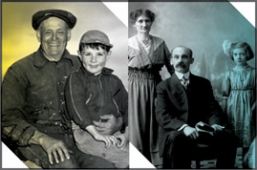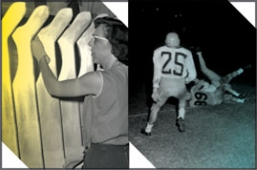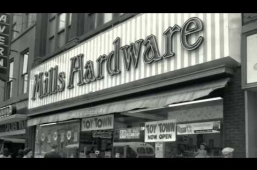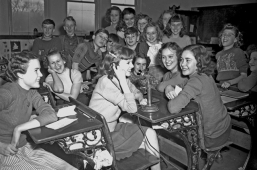Filming will take place Mar 3-4, 7am to 11pm, at 1464 Centre Rd. This may impact traffic flow in the surrounding area.
The accessibility door at Carlisle Branch is not working. We aim to fix it quickly.
Renovation preparations are underway in anticipation of the March 2 start. Computer availability may be limited. Living Room and Makerspace areas are closed. (The next nearest Makerspaces are Sherwood and Terryberry Branches.) Renovations are expected to be completed in late Spring. Thank you for your patience.
Renovation preparations are underway in anticipation of the March 2 start. Starting the week of February 23, the 2nd Floor will be closed. The Children's collection will be temporarily available on the 1st Floor. Renovations are expected to be completed in late Spring. Thank you for your patience.
Starting Tuesday February 10, the First Floor Living Room is closed due to renovation preparations. Study and work spaces are available on Floors 2-4. Thank you for your patience.
Please note the following Bookmobile visit updates.
Wednesday, February 25
Swansea 10:00-10:30am - Cancelled
Helen Detwiler 11:00am-12:00pm - Cancelled
Warplane Museum 3:00-4:00pm - Cancelled
Friday, February 27
Winona 11:00am-12:00pm - Cancelled
Maplewood 2:30-4:00pm - Cancelled
The accessible washroom at Carlisle Branch is not working. We aim to get it fixed quickly.
Effective Sunday, February 1, Sunday service hours at Central Library will be paused.
Sunday Hours will continue at Dundas, Red Hill, Terryberry, Turner Park, Valley Park and Waterdown Branches from 1-5pm.
Parks Police
In 1955, the Board of Parks Management wished to be relieved of the cost of policing the city parks. They did not wish to disband the parks police because it would cost more to turn the work over to the city police. However, the Board needed financial assistance.
By 1958, a member of the parks board suggested that the parks police force was becoming too expensive to maintain. The board also considered scrapping the force and turning responsibility over to the city police. There were mixed feelings about this because before there were parks police, the washrooms and other parks equipment were a mess.
In 1960, the parks board agreed in principle that the park police force should be maintained. The parks police knew each park thoroughly and were in a better position to keep a close check on habitual offenders. The trouble was that the city police did not want to take orders from parks police. There had been a clash of personalities.
The parks police had been only a three man force until 1956. Later, two men were hired for special jobs. These two men later left for better jobs in industry, and a third man left shortly after, also for a better job. In 1960, the parks board approved a motion that four men should be employed on a year-round basis. The board brought an end to the year-old controversy over the role of the parks police. The decision by the board meant that two more constables would be hired. In proposing a force of only four men, there would not be the building of another empire. The job of the parks police was to keep order in the parks, not to solve crimes. The parks police could obtain all the assistance they needed from the city police and other bodies if needed.
By 1963, the parks police was a six-man force. On June 28, 1963, the Hamilton Parks Police was disbanded following a fight by police personnel for more money, bargaining rights, a grievance procedure, and a car allowance. The six members of the force became "parks custodians" - and any reference to "police" in uniforms was ended. They were allowed to make only "civilian arrests" - their status as special constables was gone.
Many concerned citizens signed petitions to fight the disbandment of the parks police. A group of 24 citizens, representing the city's 8 wards, formed an executive committee to fight the disbanding.
















